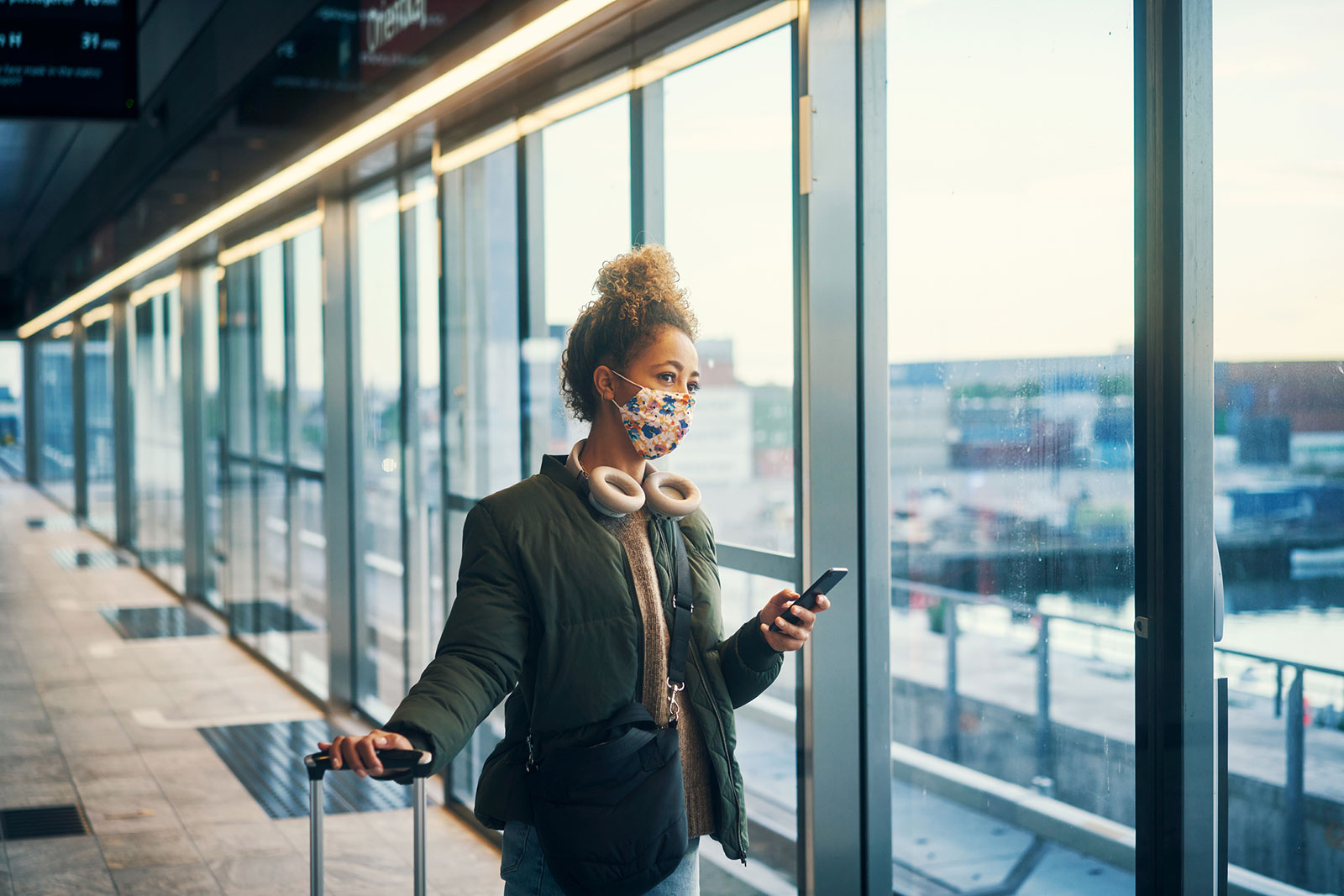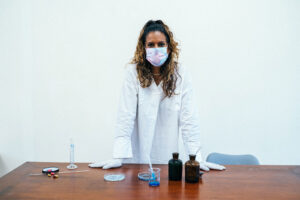Two years into the COVID-19 pandemic, restrictions and lockdowns are beginning to loosen up thanks to the success of vaccine development. Hospitals are resuming in-person appointments, airline travel is returning and warmer weather is allowing for safe gatherings outdoors.
If your care team has given you the all-clear and you feel ready to return to the world for delayed check-ups, deserved vacations or reunions with family, we’ve got some helpful travel tips! Here are a few ways for immunocompromised folks and their loved ones to step out safely and responsibly.
Mask Up
Wearing a mask continues to be one of the best ways to directly reduce risk of COVID-19 exposure. The virus caused by COVID-19 is largely an airborne disease, spreading through shared air with infected persons. Staying outdoors, being in spaces equipped with high-grade air filtration systems like a HEPA filter and limiting face-to-face conversation with others can decrease the likelihood of contracting COVID-19.
However, wearing a mask offers an important safeguard that you wouldn’t have otherwise, especially if you’re immune compromised. Double-masking—i.e., wearing two masks at once—is OK, but it’s best if you don medical grade masks certified as N95 or KN95 for optimal safety. Even if mask mandates are lifted in the location you’re traveling to, it is imperative to take this extra precaution when immunocompromised.
“When traveling where it may not always be possible to socially distance or where others may remove their masks for even a brief period of time, a well-fitting medical grade mask can be worn to minimize one’s risk of exposure,” advises Erica Susky, an infection control practitioner in the hospital epidemiology field.
Freshen Up
Susky also recommends carrying hand sanitizer and disinfectant wipes whenever you’re out in public. While the virus that causes COVID-19 is primarily airborne, there is some evidence that it can linger on high-touch surfaces. Such sites aren’t a major source of infection but disinfecting an airplane tray or rental car steering wheel is a good health habit to form regardless.
For best results, Susky recommends an alcohol-based hand sanitizer at a 70–90 percent concentration. “Every time one touches their mask, they should have clean hands. Therefore, the sanitizer will come in handy if one needs to adjust their mask or if they touch common surfaces. Disinfectant wipes will minimize one’s risk if one uses them to disinfect surfaces. Allow the disinfectant to air dry to ensure the appropriate contact time of the disinfectant to act against SARS-CoV-2,” she explains.
And don’t forget to wash your hands!
Soak Up Slow Seasons
Depending on the mode of transportation, you may not be able to socially distance completely. But there are workarounds for avoiding large crowds during the rest of your trip to maximize health protection while traveling.
Accessible travel blogger Kristin Victoria (World on Wheels) is a full-time ventilator user. She recommends starting small with domestic travel, taking care to steer clear of busy seasons at popular U.S. destinations.
“[Domestic travel] allows me to have the most control over my environment, socially distance and limit possible exposure to others,” she says. “I try to arrange my travel for shoulder season to avoid crowds. This past September, I road tripped from New York to South Dakota, making sure to arrive after Labor Day which I knew would have more crowds. I spent a lot of time outdoors visiting National Parks and Monuments. It was a fabulous trip, and I didn’t feel like I missed out on anything or put myself at risk.”
In addition to shoulder seasons being less crowded, you’ll also find discounted rates for lodging, greater availability for activity or restaurant reservations and cheaper transportation fare. Not a bad deal!
Hit the Highway
For long-distance passenger travel, air transportation reigns supreme in the U.S. But don’t feel like you have to go that route. Even with masks, air filtration and vaccines, a crowded flight can still pose an unnecessary risk for immunocompromised folks.
If you have the option, consider renting a car or using your own vehicle for domestic travel. This will allow you to have more control over your environment and who you’re interacting with. You can map out a route by researching location-specific COVID-19 case numbers and policies, cherry-picking roadside stops that will be safer for someone immunocompromised.
Plus, when driving, you’ll realize how large the world is—you’ll likely stumble upon something you would’ve missed if you’d flown instead.
Get Insured
Travel insurance is more important than ever nowadays, especially if you’re flying internationally. Nobody wants to plan an extravagant and expensive trip abroad just to cancel when COVID-19 cases surge.
Research travel insurance options and consider purchasing a plan for peace of mind. Make sure there is no pandemic exclusion clause. This way, your health and your wallet are covered should you have to cancel plans.
Get Vaccinated
Overall, vaccinations are your safest bet for protection when traveling while immunocompromised. Studies have shown that vaccines and boosters protecting against the COVID-19 virus are completely safe and encouraged for cancer warriors. If you want to stay safe while stepping out, get the shot.







